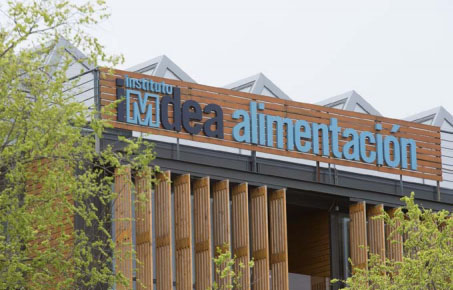In The Spotlight…
Nutritional Genomics and Epigenomics Group
Nutritional Genomics and Epigenomics Group is currently carrying out the PREDIMED-PLUS project. PREDIMED-PLUS is a multidisciplinary multicenter study involving 23 research groups from Spain. The PREDIMED-PLUS consortium has recruited more than 6.800 participants with obesity and metabolic syndrome between 55 and 65 years without previous Cardiovascular Disease (CVD). Participants have been randomly distributed in one of two groups: control and intervention group. Participants in the control group receive educational individual and group sessions twice a year to encourage them to adhere to a Mediterranean Diet.
Participants in the intervention group are visited every month by a team of nutritionists and specialists in physical activity and follow a hypocaloric Mediterranean Diet and a physical exercise program. Along the 6 years of follow-up we will record the incidence of CVD and other co-morbidities in the 2 groups.
Our group has recruited 170 participants in 6 different primary care centers of Madrid and one hospital: • C.S. Aquitania
- C.S. Buenos Aires
- C.S. Bustarviejo
- C.S. Colmenar Viejo
- C.S Fuencarral
- C.S. Ibiza
- Hospital La Paz
For this purpose, the Nutritional Genomics and Epigenomics Group has created a network of more than 40 physicians and nurses that have collaborated in the participant’s recruitment and are currently involved in the clinical management of the participants. At present, this project is in the early intervention phase. Results are coming soon.
References
1. Daimiel, L., T. Vargas, and A. Ramirez de Molina, Nutritional genomics for the characterization of the effect of bioactive molecules in lipid metabolism and related pathways. Electrophoresis, 2012. 33(15): p. 2266-89
2. Konstantinidou, V., L. Daimiel, and J.M. Ordovas, Personalized nutrition and cardiovascular disease prevention: From Framingham to PREDIMED. Adv Nutr, 2014. 5(3): p. 368S-71S
3. Mico, V., L. Diez-Ricote, and L. Daimiel, Nutrigenetics and Nutrimiromics of the Circadian System: The Time for Human Health. Int J Mol Sci, 2016. 17(3): p. 299
4. Mico, V., et al., Unsuccessful Detection of Plant MicroRNAs in Beer, Extra Virgin Olive Oil and Human Plasma After an Acute Ingestion of Extra Virgin Olive Oil. Plant Foods Hum Nutr, 2016. 71(1): p. 102-8
5. Rosique-Esteban, N., et al., Leisure-time physical activity, sedentary behaviors, sleep, and cardiometabolic risk factors at baseline in the PREDIMED-PLUS intervention trial: A cross-sectional analysis. PLoS One, 2017. 12(3): p. e0172253
6. Daimiel-Ruiz, L., et al., Dietary lipids modulate the expression of miR-107, a miRNA that regulates the circadian system. Mol Nutr Food Res, 2015. 59(9): p. 1865-78
7. Corella, D., et al., Polymorphism of the Transcription Factor 7-Like 2 Gene (TCF7L2) Interacts with Obesity on Type-2 Diabetes in the PREDIMED Study Emphasizing the Heterogeneity of Genetic Variants in Type-2 Diabetes Risk Prediction: Time for Obesity-Specific Genetic Risk Scores. Nutrients, 2016. 8(12)
8. Garaulet, M., et al., Lunch eating predicts weight-loss effectiveness in carriers of the common allele at PERILIPIN1: the ONTIME (Obesity, Nutrigenetics, Timing, Mediterranean) study. Am J Clin Nutr, 2016. 104(4): p. 1160-1166
9. Smith, C.E., et al., Associations of the MCM6-rs3754686 proxy for milk intake in Mediterranean and American populations with cardiovascular biomarkers, disease and mortality: Mendelian randomization. Sci Rep, 2016. 6: p. 33188
10. Barragan, R., et al., MicroRNAs and Drinking: Association between the Pre-miR-27a rs895819 Polymorphism and Alcohol Consumption in a Mediterranean Population. Int J Mol Sci, 2016. 17(8)
Highlighted Projects
1. “Application of new technologies and methods in nutrition research – the example of phenotypic flexibility”. 289511. NutriTech. BBE.2011.2.2-02. FP7.European Comission. 2012 – 2016
2. “PREDIMED+DM: Effect of an intervention based in a hipocaloric Mediterranean Diet and physical activity on the prevention of Type 2 Diabetes Mellitus in subjects with Metabolic Syndrome”. Instituto de Salud Carlos III – Proyectos de Investigación en Salud 2014 PI14/01374. 2015 - 2017
3. “Population, family and ageing in the contemp

